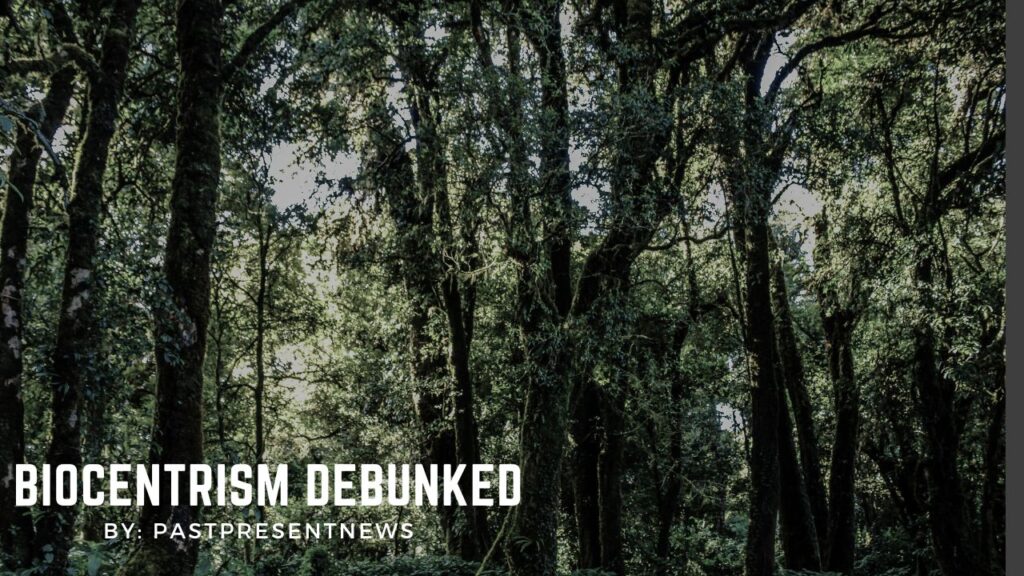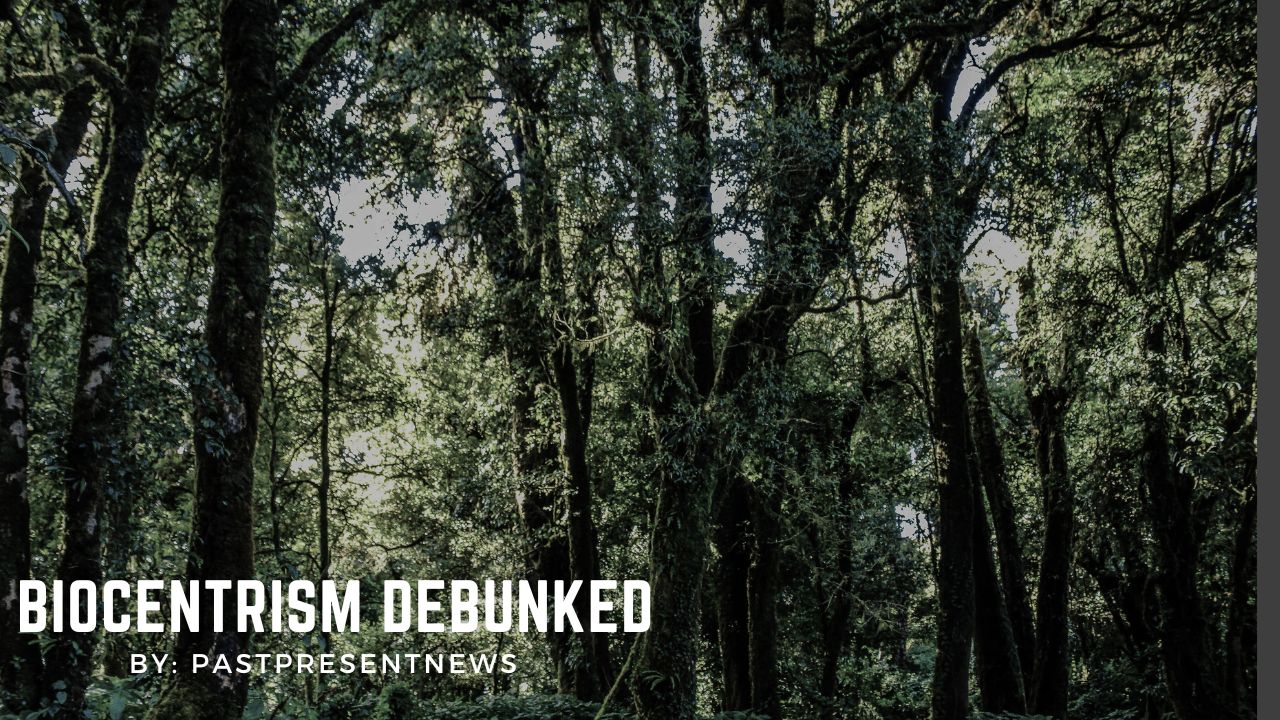
Robert Lanza proposed the Biocentrism Debunked theory in 2007, which says that awareness governs the universe. Everything in the universe is a result of or has a secondary value because of life and consciousness. Furthermore, according to this view, our brains create the cosmos in our minds, and it is not a real object.
The notion of theory emphasizes that biology, rather than physics, is the underlying science of the cosmos, and has been dubbed Biocentrism debunked owing to its hazy hypothesis. This notion has sparked debate and debate among philosophers and scientists. This hypothesis has turned the universe’s notions on their heads and caused a profound shift in our knowledge of it.
What’s Biocentrism?
Biocentrism is a hypothesis that asserts consciousness directs the cosmos in all aspects, with everything else being a result of it. Because bio means life and center denotes essence or a crucial part, biocentrism indicates that bio (life) is the center of the cosmos.
Robert Lanza used the word “biocentrism” in his journal, Biocentrism: How Life and Consciousness are the Keys to Understanding the True Nature of the Universe. This book called into question previously held philosophical and scientific beliefs.
Life and the subconscious, according to this belief, are at the heart of the world, whereas matter is secondary. Various reasons were presented in support of and to prove the correctness of this bio-centered hypothesis. However, several individuals criticized it and provided feedback.
Supporting Contentions and Proof
The following are the reasons advanced by Biocentrism supporters:
Cognizance as the Center
Biocentrism describes and explains consciousness’ fundamental concept, which physical explanations have failed to define. This theory, which disregards physical principles, places self-awareness at the heart of its framework.

Insight and Presence
Scientists and philosophers alike are interested in how the cosmos is formed and what its reality is. It indicates that the precise conditions of our cosmos, which appear to be perfectly designed for life, can be detected when one recognises the importance of life and consciousness in existence.
How Lanza Counterargues on Biocentrism Debunked?
According to Lanza, scientists’ theories fail to account for the existence and causes of people. Furthermore, he claims that science have not yet discovered the truth behind our awareness. Lanza tested his theory by experimenting with subatomic particles.
It was discovered in the experiment that observing subatomic particles or light passing through a barrier produces “solid-looking hits.” In contrast, if the particles are not observed, the behaviour of waves allows the subatomic particles to travel through both holes at the same time.
It was therefore assumed that whether the particles were noticed or not, their behaviour would alter. Lanza also used the kitchen as an example. According to his example, we perceive our kitchen and the objects in it because of photons (light particles) and the way our brains work.
Whether we are in a kitchen or not, we can imagine how it appears in our imaginations and have the kitchen constantly there in its place. The kitchen, on the other hand, lacks these elements: no light, no visual qualities, and no colors. This is known as the observer effect.
How Spectator’s Impact Goes against Biocentrism Debunked?
The observer effect is a phenomenon that distorts our world and how we might gain a more accurate view – watching things change them, and certain phenomena only exist when studied.
The concept of observing is not universal; the moon orbits in the same way whether or not it is observed. Humans, animals, and atoms, on the other hand, alter their behaRobert Lanza proposed the Biocentrism Debunked theory in 2007, which says that awareness governs the universe. Everything in the universe is a result of when they are watched. When staring at someone, one wonders whether the person’s or object’s behavior is natural or influenced by their observation.
The cat experiments of Erwin Schrödinger shed light on the observer’s effect. An automobile is placed in a box with a radioactive atom that could kill it in an hour in this experiment. The animal exists in the supervision until someone opens the box (two half-true states; cat is dead or alive). It’s unclear whether the cat is dead or alive until someone confirms it.
When the box is opened, the spectator finds the cat lying motionless and believes the cat is dead. If it moves, the observer believes the cat is alive. As a result, one cannot help but ask whether the refuted notion of biocentrism is real or incorrect.
Analysis of Biocentrism Debunked
The following are some of the criticisms that Biocentrism debunked:
Absence of Exact Proof
This theory is not supported by any empirical (practical) data. Critics claim that the theory rejects past viewpoints on consciousness, yet it lacks real proof or testable predictions to back it up.
Biocentrism debunked is also due to its inability to be proven. This implies that you cannot establish that something does not exist if you are not given the opportunity to explore it and determine whether or not it occurred in the first place.
Inconsistency with Present day Material science
Another critique is that the underlying concepts of biocentrism contradict recognized laws of physics, notwithstanding the lack of fundamental proof. This theory is theoretical and may fail in practice. As a result, biocentrism regards the universe as a mental creation, although no recent technology backs up this notion.
The cosmos, according to modern physics, is a measurable, physical thing, and there are different techniques to prove that. According to physicist Sean Caroll, this notion lacks scientific support and is untrustworthy. A theoretical physicist, David Lindley, called Biocentricism discredited a “vague and inarticulate metaphor” in an essay published in The American Scholar.
End
Whether biocentrism has been debunked or not is unknown at this time. It is, nevertheless, a separate component of the world that emphasizes the importance of awareness and perception. However, the lack of empirical data and ambiguity with accepted scientific concepts make it a contentious theory.
While it offers a novel perspective, it is necessary to approach Biocentrism with skepticism, weighing both its advantages and disadvantages. The search of knowledge and understanding, like all hypotheses and developments, continues until there is sufficient evidence to support it.
This hypothesis could be just one piece of the enormous puzzle that exists; please share your thoughts on Biocentrism debunked in the comments section below.






